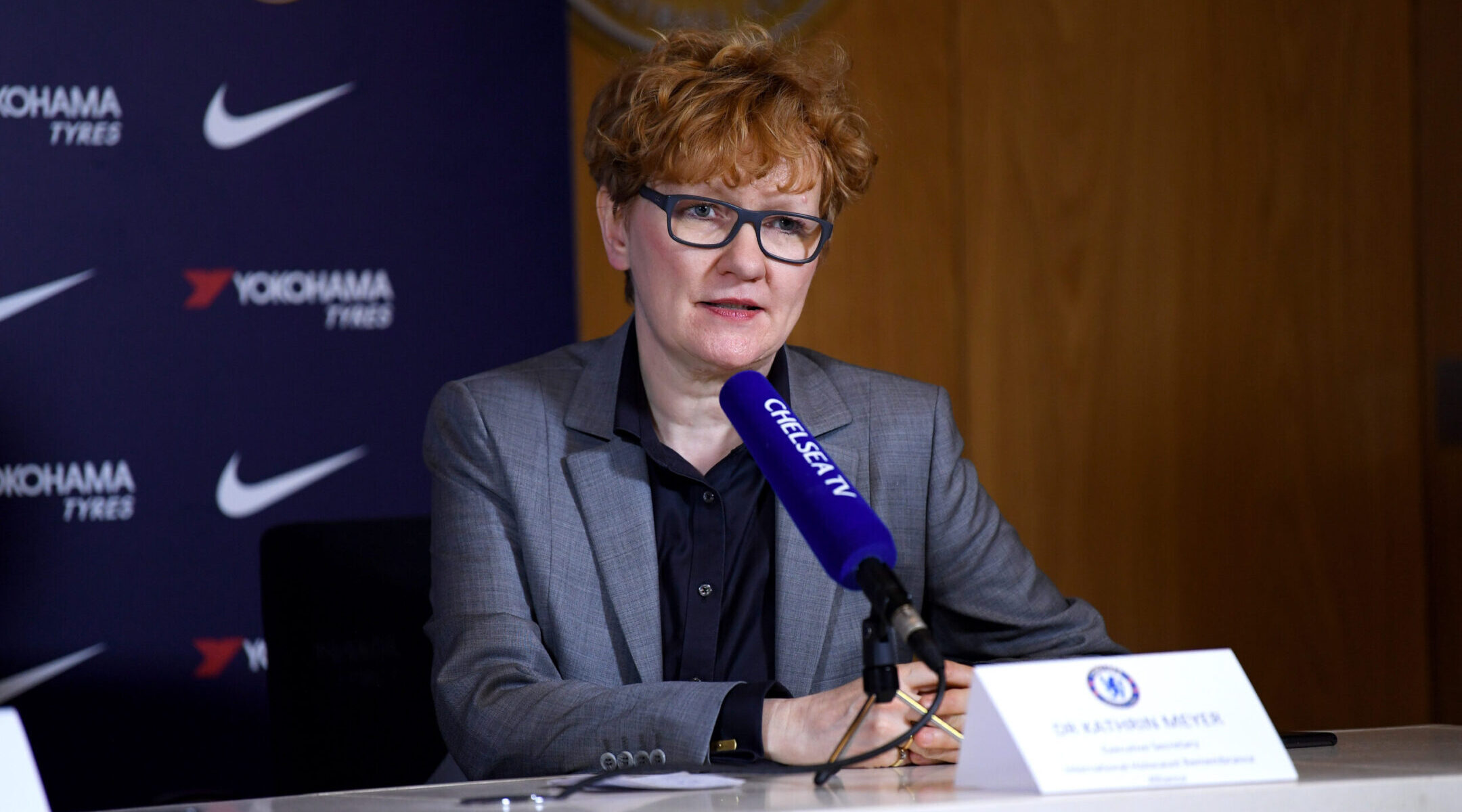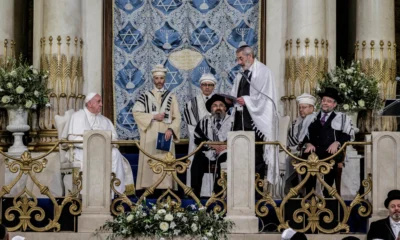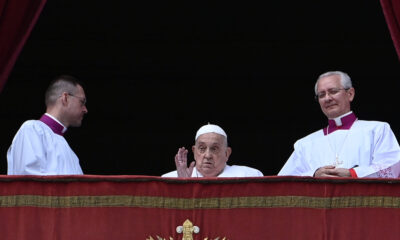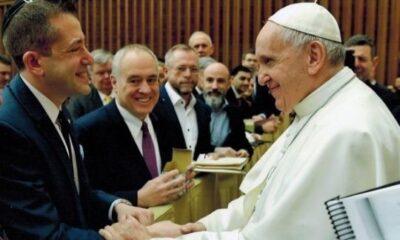
World

Holocaust distortion ‘more dangerous than denial’
JTA – As the world marks 80 years since the liberation of Auschwitz, one of Germany’s most prominent Holocaust scholars says twisting the facts about the Nazi extermination of six million Jews is far more harmful than outright denial, and that such distortion is “a stepping stone from antisemitism into the mainstream”.
Kathrin Meyer, the secretary-general of the International Holocaust Remembrance Alliance (IHRA) said she considered Holocaust distortion particularly dangerous, especially as the number of survivors dwindles with each passing year. This week, when the world focuses on International Holocaust Remembrance Day, only 50 survivors took part in ceremonies at the Nazi death camp in Poland, down from 300 just five years ago.
“Obviously, it’s an insult to the victims, but it’s also a threat to our democracy because you won’t find a single radical, anti-democratic, nationalistic, imperialistic group ideology that doesn’t have a distorted view of the Holocaust,” Meyer said.
One example Meyer offered is that of Russian President Vladimir Putin’s vilification of neighbouring Ukraine as a “Nazi government” despite the fact that Ukraine’s Jewish president, Volodymyr Zelenskyy, was democratically elected.
“It’s always those who attack freedom, liberal views, diversity, and pluralistic societies,” said Meyer, who is stepping down from her position after two decades. “They use Holocaust distortion for their political gain.”
Meyer, who isn’t Jewish, has led the Berlin-based IHRA as the definition of antisemitism it developed became a flashpoint.
While many Jewish groups and a number of governments and municipalities have adopted the definition to identify antisemitism, some critics say it could stifle free speech by chilling or criminalising legitimate criticism of Israeli policy.
Meyer recalled that it took the IHRA three years to adopt a definition of antisemitism that satisfied all its members, which include 35 member states; eight observer countries; and nine global partners including the United Nations, the European Union, UNESCO (the United Nations Educational, Scientific and Cultural Organisation), and the Claims Conference.
That definition, Meyer said, is now “one of the most important tools ever” in the fight against Jew hatred.
“Before the adoption of this definition, I was confronted time and again with statements like, ‘Oh, in our country, there’s no antisemitism.’ We don’t have this discussion any longer,” said Meyer.
The IHRA defines antisemitism as having a “certain perception of Jews that may be expressed as hatred” toward them. That perception includes certain kinds of rhetoric and action aimed at Israel and its supporters, for example, denying Jews the right to self-determination or calling Israel a “racist endeavour”.
Proponents of the definition see those examples as an important response to events like the sharp rise in vandalism of synagogues and cemeteries, verbal and physical attacks against Jews, and “anti-Zionist” incitement since the 7 October 2023 invasion by Hamas and Israel’s subsequent war in Gaza.
“The events of 7 October have tragically proven us right. The dramatic increase in antisemitic incidents came right after the worst attack on Jews since the Holocaust. The fact that this didn’t lead to more solidarity but to more antisemitism shows how deep this hatred goes, and how irrational it often is.”
The IHRA was founded as a temporary task force by then-Swedish Prime Minister Goran Persson. Along with Britain’s Tony Blair and United States President Bill Clinton, he organised a Stockholm forum held 25 years ago, on 27 January 2000, that was attended by 46 heads of state and foreign ministers. There, they signed the Stockholm Declaration and committed their countries to support Holocaust education, remembrance, and research.
“That was revolutionary, because until then, it was mainly Jewish organisations that had commemorated the Holocaust, but it was never really seen as a governmental responsibility,” she said. “We had very few member countries at that point, but the others were invited. Soon it became an international institution with 35 member countries and global impact.”
One of Meyer’s biggest concerns is the immense power of Big Tech, she said, citing “the problems we face just with Meta getting rid of fact-checking” on Facebook, and the increasing virulent hate speech spread on platforms like Instagram, TikTok, and YouTube.
A recent UNESCO study of 4 000 pieces of content collected in June and July 2021 showed that 10% of such content on Facebook, 15% on Twitter (now X), and nearly half on Telegram either denied or distorted Holocaust history.
“There’s no question artificial intelligence [AI] brings huge risks,” Meyer said, but it also brings great opportunities, because AI cannot only be used by the bad guys. It can be used by us too, for example, in keeping the memory of survivors alive,” she said.










